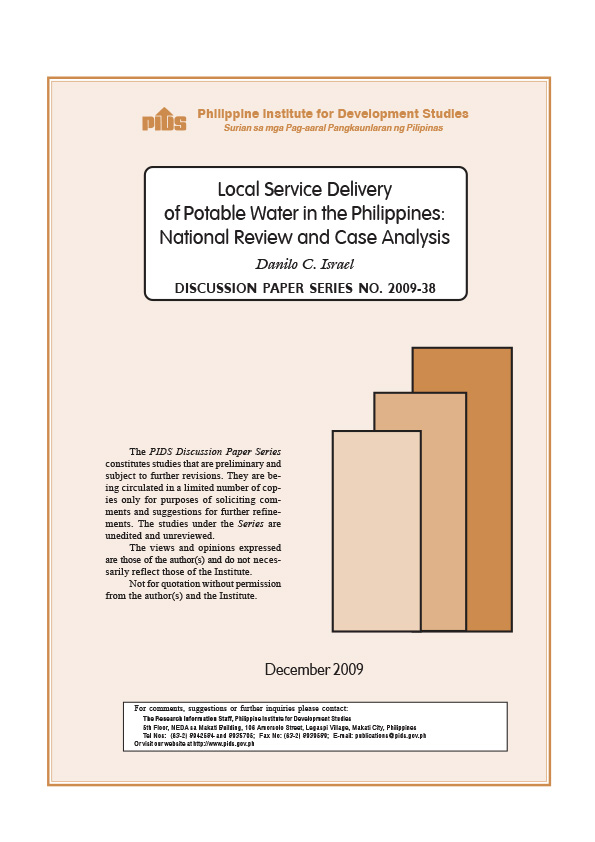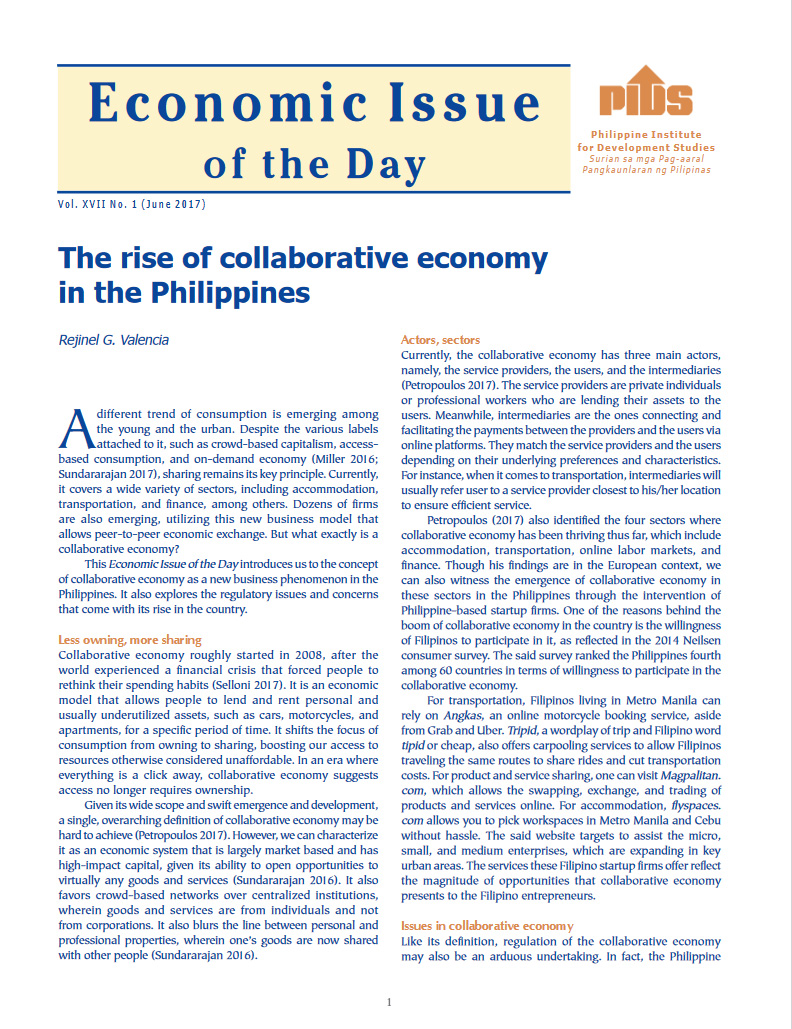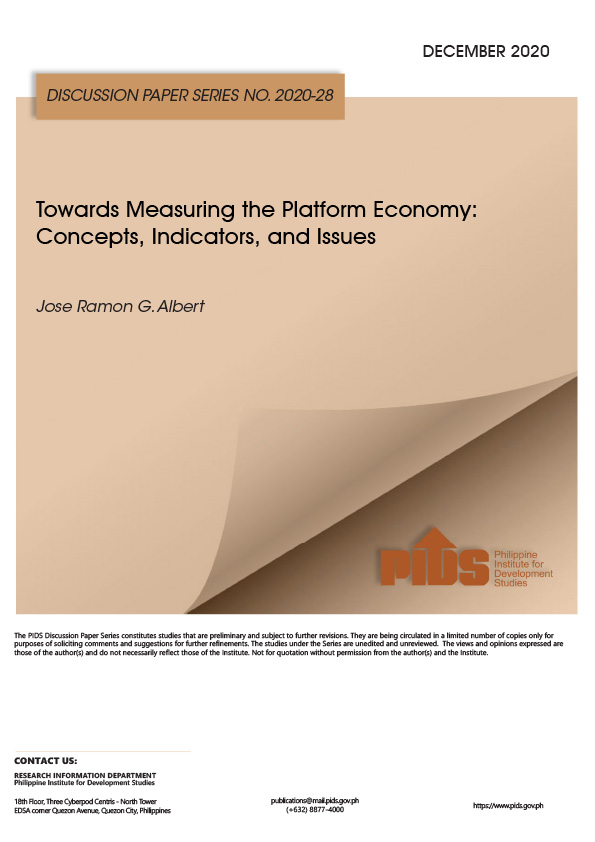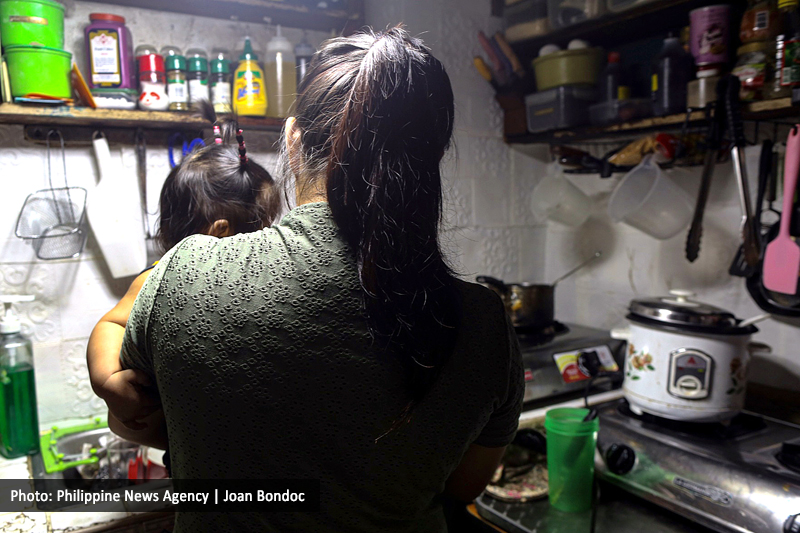Start-up companies are driving the growth of collaborative economy in the country, according to the Philippine Institute for Development Statistics (PIDS).
The collaborative economy is an economic model that allows people to access certain goods and services without ownership, which augurs well for the needs of start-up firms.
Unfortunately, due to its novelty, state-owned PIDS said the social and economic impacts of the collaborative economy still cannot be measured.
The Philippine government should, instead, reimagine its regulation mechanisms, making sure that the industries emerging from the collaborative economy are ‘daylighted and brought into legitimized transactional world’,” PIDS said in its latest Economic Issue of the Day.
PIDS warned that if the Philippines fails to legitimize these transactions in the collaborative economy, operators will be forced to go underground.
This will lead to tax evasion, which is one of the issues in the collaborative economy. The collaborative economy, which lack paper trails, makes it difficult for government to track their taxes.
Another issue is the employment the collaborative economy creates. Some workers’ services are not exclusive to one particular intermediary and makes it problematic to track.
Further, there are issues regarding the quality of service they provide, as well as the lack of accountability of service providers.
[The] collaborative economy is here to stay. As such, the Philippine government must analyze the policy environment on collaborative economy around the world to assess its social and economic impacts. The end goal, of course, is to lay down a set of clear and evidence-based policies and framework to maximize the fruits of this emerging economy for the benefit of the Filipino people,” PIDS said.
The collaborative economy, worldwide, is composed of four sectors—accommodation, transportation, online labor markets and finance.
In the Philippines, firms in the collaborative economy include companies, like Angkas, an online motorcycle booking service and Tripid, which offers carpooling services.
Other firms include Magpalitan, which allows the swapping, exchange and trading of products and services online and flyspaces, which allows people to pick workspaces in Metro Manila and Cebu without much hassle.
The services these Filipino startup firms offer reflect the magnitude of opportunities that collaborative economy presents to the Filipino entrepreneurs,” PIDS added.
The collaborative economy is an economic model that allows people to access certain goods and services without ownership, which augurs well for the needs of start-up firms.
Unfortunately, due to its novelty, state-owned PIDS said the social and economic impacts of the collaborative economy still cannot be measured.
The Philippine government should, instead, reimagine its regulation mechanisms, making sure that the industries emerging from the collaborative economy are ‘daylighted and brought into legitimized transactional world’,” PIDS said in its latest Economic Issue of the Day.
PIDS warned that if the Philippines fails to legitimize these transactions in the collaborative economy, operators will be forced to go underground.
This will lead to tax evasion, which is one of the issues in the collaborative economy. The collaborative economy, which lack paper trails, makes it difficult for government to track their taxes.
Another issue is the employment the collaborative economy creates. Some workers’ services are not exclusive to one particular intermediary and makes it problematic to track.
Further, there are issues regarding the quality of service they provide, as well as the lack of accountability of service providers.
[The] collaborative economy is here to stay. As such, the Philippine government must analyze the policy environment on collaborative economy around the world to assess its social and economic impacts. The end goal, of course, is to lay down a set of clear and evidence-based policies and framework to maximize the fruits of this emerging economy for the benefit of the Filipino people,” PIDS said.
The collaborative economy, worldwide, is composed of four sectors—accommodation, transportation, online labor markets and finance.
In the Philippines, firms in the collaborative economy include companies, like Angkas, an online motorcycle booking service and Tripid, which offers carpooling services.
Other firms include Magpalitan, which allows the swapping, exchange and trading of products and services online and flyspaces, which allows people to pick workspaces in Metro Manila and Cebu without much hassle.
The services these Filipino startup firms offer reflect the magnitude of opportunities that collaborative economy presents to the Filipino entrepreneurs,” PIDS added.












